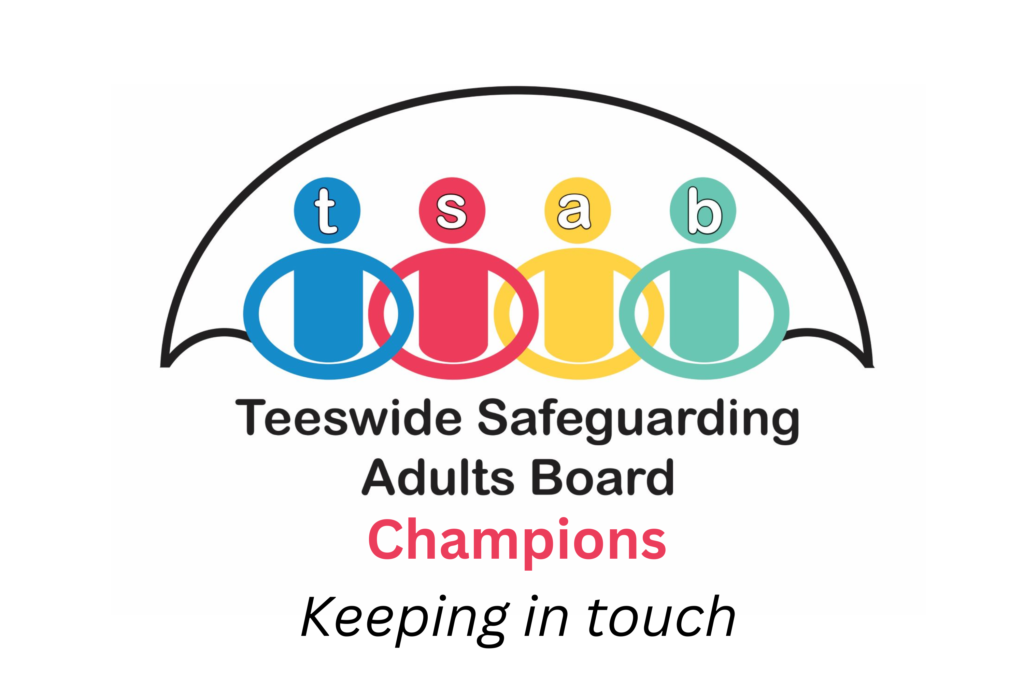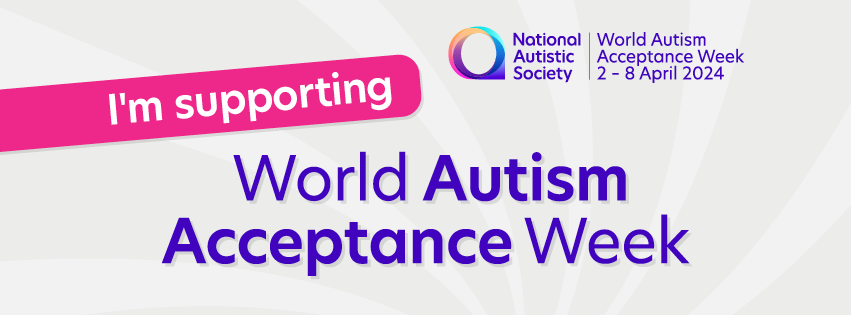
Happy April Safeguarding Champions and a big warm welcome to our new Safeguarding Champions!
Thank you to all those who attended our Safeguarding Champions Event, it was a huge success with some fantastic guest speakers.
Please circulate the information in this bulletin across your networks to help us to continue to raise awareness of safeguarding adults in Tees.
Learning from recently published Safeguarding Adult Reviews (SAR)
We have recently published the Bernadette SAR Report, Learning Briefing & Recorded PowerPoint – to view the documents visit our dedicated SAR page.
Bernadette
Bernadette was 32 years old and lived with her male partner. She had diabetes, depression and a history of drug and alcohol misuse. She was known to a number of agencies but her engagement with services was inconsistent. Bernadette had also been identified as a victim of Domestic Abuse and had previously been subject of Multi-Agency Risk Assessment Conference (MARAC). Bernadette had contact with health services on a number of occasions, including A&E. On the day before her death, she presented to acute services with injuries, but left prior to examination – she was deemed to have mental capacity with respect to this decision.
This SAR looks at how services worked together to support Bernadette and highlighted the following themes:
- Professional curiosity
- Mental capacity
- Consent to share information and when professionals can reasonably override the lack of consent
- Recognising Self-Neglect and using the Section 42 (Safeguarding) Framework
- Understanding the Drug and Alcohol Related Death process
Organisations are encouraged to read the SAR Report and Learning Briefing and use the
Power Point Presentation to consider and apply the learning to their own practice.
Policies, Procedures and Guidance
The safeguarding adults’ Decision Support Guidance has been reviewed. The purpose of the guidance is to assist practitioners in assessing the seriousness and level of risk associated with a safeguarding adults concern.
It is primarily for use by Safeguarding Adults Managers, in the Local Authority, to assist with their decision-making at the point of receiving a safeguarding adults concern; however others may find it helpful to refer to this guidance when responding to a concern of abuse or neglect.
The guidance is not intended to replace professional judgement and when care providers are using this guidance, it is important to note that all safeguarding concerns must be notified to the Local Authority.
Do you have concerns that an adult is experiencing or is at risk of abuse or neglect? Visit https://www.tsab.org.uk/report-abuse/ to find out how to report your concerns.
TSAB have recently reviewed Incidents Between Residents – Advice for Local Authority Professionals. When a Safeguarding Concern is submitted linked to an ‘Incident between Residents’ in a Care Home, this advice can be used to help Local Authority staff respond to the Concern in a consistent manner.
This guidance is for staff in care transfer hubs and others involved in planning discharge of patients (including NHS, local authority, housing and other partners).
It includes examples of best practice, including step by step guides and example pathways, which can be adapted to suit local practices, for discharging patients:
- at risk of or experiencing homelessness
- with safeguarding concerns
- with no recourse to public funds (NRPF)
Discharging people at risk of or experiencing homelessness – GOV.UK (www.gov.uk)
Child to Parent Violence and Abuse (CPVA) is recognised nationally as an issue which relates to safeguarding both adults and children. The pathway and screening tool aims to support professionals and help them to identify known risks in Child to Parent Violence and Abuse cases.
World Autism Acceptance Week 2nd – 8th April
This week is Autism Acceptance Week and TSAB have launched their Working with Autistic Adults webpage. This page aims to raise awareness of autism and provide the starting blocks for those who may work with Autistic Adults, to support the provision of accessible and inclusive services. It includes practical steps for professionals to consider, as well as links to other websites and resources.

“Award-winning charity, Daisy Chain supports and empowers autistic and neurodivergent individuals through the provision of holistic person-centred services, whilst promoting training, wellbeing, inclusion and acceptance regionally and nationwide. Based on a 5.5-acre site in Stockton, the charity also has two large retail stores, a range of family support across the North East and respite for families.
The organisation continues to evolve alongside beneficiary needs and offers a variety of specialist provisions to over 5,000 families and neurodivergent individuals inclusive of social clubs, respite care, wellbeing, independent living skills, employability and animal therapy.
Find out more and get involved: www.daisychainproject.co.uk”


Support is available from local support groups and services (some of which are listed below). The local authority where the individual lives can provide support and information on needs assessments, support for carers and further support.
- Daisy Chain https://www.daisychainproject.co.uk/
- Autism Matters https://autism-matters.co.uk/teesside/
- North East Autism Society https://www.ne-as.org.uk/
- Autism Initiatives https://autisminitiatives.org/
- Dimensions https://dimensions-uk.org/region/north/
- You can also search for local groups using the National Autistic Society services directory.
Autism Central (Daisy Chain) – A programme co-designed to provide high-quality and accessible autism information, education and coaching for families, and carers, and co-delivered by autistic people, families and carers.
National Organisations
- National Autistic Society https://www.autism.org.uk/
- Autistic Parents UK
- Support is also available from people with lived experience via social media. Visit https://www.nhs.uk/conditions/autism/support/ for further information
Dates for the Diary
Listed below is some of the campaigns we will be raising awareness of. Follow us on Social Media @TeeswideSAB to keep up to date with resources and information we share as part of key campaigns. Email us at [email protected] to let us know how you get involved.
National Stalking Awareness Week led by the Suzy Lamplugh Trust, is a national campaign to raise awareness of Stalking. The Suzy Lamplugh Trust provide help and support in relation to Stalking, including a helpline: National Stalking Helpline: 0808 802 0300 and an online tool that can be used by an individual to better understand if they are being stalked and what support is available.
Stalking is classed as any behaviour from another person which is persistent, unwanted and harassing; anything that causes you any kind of fear or anxiety. Some examples can include; unwanted or malicious communications, unwanted attention, watching or following someone or loitering where the person frequents, monitoring usage of someone’s internet, email or other electronic communications, damaging a person’s property.
In the majority of stalking cases the victim will know the stalker (such as a partner or ex-partner for example), however there have been cases where the victim does not know the offender.
In some cases stalking can escalate to physical abuse. Stalking or harassment should be reported to the Police via 101 or 999 in an emergency.
For further information visit Suzy Lamplugh’s website. You can also download and share their resources, including a leaflet.
Deaf Awareness Week is an annual event to raise awareness of the Deaf Community and to promote inclusivity.
Deaf people and those with hearing loss have provided some key communication tips:
There are lots of resources that can be found online to raise awareness during this week, including resources from The Royal National Institute for Deaf People (RNID)
TSAB will be raising awareness of Carers Week and Elder Abuse Day. The week will aim to highlight the role and challenges of unpaid carers as well as promoting carers assessments to support those carrying out a caring role. The week will also raise awareness of elder abuse.
For more information on carers week visit: https://www.carersweek.org/
With the support of local services, TSAB have also recently updated their Carers webpage .
Further Information and Training
A new workbook to support practitioners and organisations to be more Trauma Informed has been developed. The workbook features practical tools that can be adopted in everyday practice to help support the physical and emotional safety of an individual accessing a service.
The workbook can be accessed via TSAB’s training resources page.
On 1st April 2024 our e-learning provider (Me-Learning) upgraded the system that we use for our e-learning courses. The full course range is still available, but the new system is more secure, more accessible and will work more efficiently when accessed on tablets or mobiles. Users will no longer have access to the old system.
All users will need to register for an account on the new system. Your old login details will not work on the new system. Please visit https://www.tsab.org.uk/training/ for further advice and guidance.
Training Courses 2024/25
Our Training plan is being refreshed and developed for 2024-2025 and new dates will be
advertised soon. To view and request a place on any of our current training courses please visit
our Training Courses and Events page.
Thank you to all professionals, service users and the general public across Tees who have given their views to help us to inform the Board’s future safeguarding priorities across the next 12 months. The results are now being analysed and a further update will be provided in our next bulletin.
The Disclosure and Barring Service is hosting its Spring Conference: DBS Spring Conference 2024 | LinkedIn on Tuesday 30 April – a free virtual event open to everyone with an interest in safeguarding.
DBS supports employers to make safer recruitment decisions by processing and issuing criminal record checks and by maintaining the Adults’ and Children’s Barred Lists.
At their Spring Conference 2024, they will be sharing a range of webinars tailored to support individuals and organisations across a variety of sectors. Each webinar will be hosted by specialists in the areas they will discuss. Following each webinar there will be an opportunity (for everyone) to participate in a live Q & A session with DBS experts.
You will be able to join all six webinars throughout the day, or choose any specific ones you are most interested in.
To keep up to date with announcements, and to view details of the webinars, click on the link above, follow the page and turn on the page notifications at the top of the page.

Want to learn more about your role as a champion? Visit our dedicated Safeguarding Champions Area for further information.
Don’t forget that TSAB has a dedicated webpage hosting details of local and national services.
Can’t see your service/ another service on there and think it should be added? Please send the details to [email protected].
Do you have concerns that an adult is experiencing or is at risk of abuse or neglect?
Visit https://www.tsab.org.uk/report-abuse/ to find out how to report your concerns. The page hosts the TSAB Concern Form which should be completed and submitted to the relevant local Adult social care service or alternatively you can contact them by using the contact numbers listed on the page.
As a reminder you should report abuse when:
· The adult has needs for care and support (whether or not the authority is meeting any of those needs)
· And is experiencing, or is at risk of, abuse or neglect
If you require this bulletin in a different format please email [email protected].